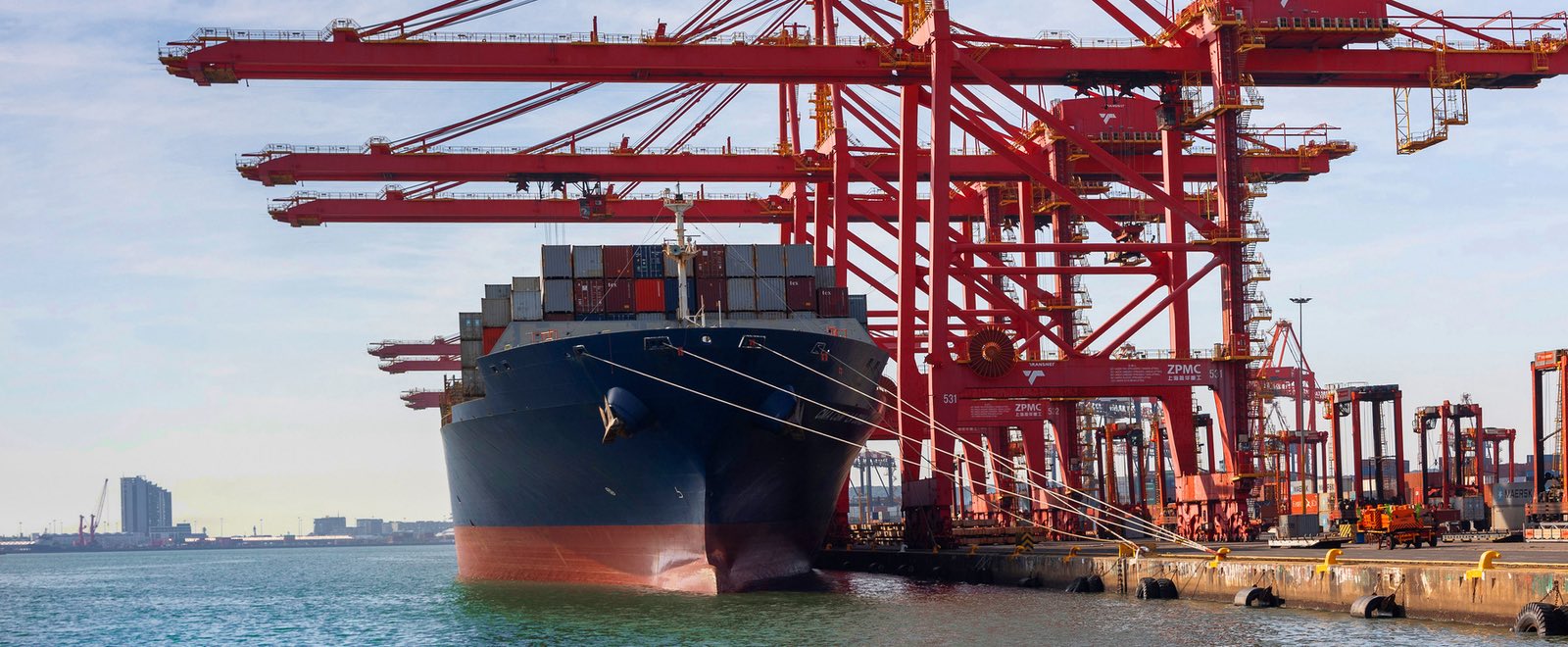Durban firm takes on Transnet over shipping crane tender
Caption:
Transnet cranes unloading cargo from a ship
📷 SUPPLIED
State-owned transport and logistics company Transnet and Durban-based construction firm Channel are set for a legal showdown tomorrow at the Johannesburg High Court over a lucrative shipping container crane tender.
Channel filed a court application to interdict Transnet from going ahead with procuring a fleet of new jib cranes from original equipment manufacturers (OEMs).
Transnet, which operates eight major South African seaports through its subsidiary Transnet National Ports Authority, is challenging the interdict.
The legal battle stems from a tender issued by the parastatal on 6 May 2025 for the acquisition of 22 dockside-rail mounted jib cranes for the ports of Durban, Cape Town, and East London. The OEMs vying for the tender have been given until 25 June 2025 to submit their bids.
Transnet aims to equip its ports with new jib cranes for ship repairs and maintenance -- one of the key five sub-sectors of the ocean economy targeted by government for accelerated growth.
The other sub-sectors that government is targeting as part of implementing the ocean economy-focused Operation Phakisa initiative are freight and logistics, aquaculture, fisheries, and oil and gas exploration. The initiative aims to unlock the ocean’s economy, which according to estimates could contribute between R129bn and R177bn to the national economy and generate between 800, 000 to 1 million direct jobs by 2033.
The jibs that Transnet is looking to acquire will replace older jibs that have been in operation for nearly 70 years. Jibs are overhead cranes with horizontal arms for hoisting and moving heavy objects.
Since the Israel-Hamas conflict broke out in late 2023, the Yemen-based Houthis have been attacking ships in the Red Sea’s Bab al-Mandab Strait, disrupting the usual trade route through the Suez Canal, which facilitates the movement of goods between Europe, Asia, and North America. Around 30% of global container trade moves through this route.
With the recent eruption of war between Israel and Iran, commercial shipping is likely to remain under threat in the Red Sea and the Middle East.
Transnet first went out to tender for the jibs in February last year, but at the time the parastatal issued three separate tenders for the ports of Durban, Cape Town, and East London. Transnet planned to install two of the jibs at the East London port, and the rest at Durban and Cape Town ports.
Channel entered into a partnership with Turkish jibs crane manufacturer Iskar to specifically bid for the East London tender. However, Transnet canceled all three tenders in September last year and informed bidders including Channel about the cancellation.
The cancellation of the East London tender displeased Channel, prompting the construction firm to apply for an interdict to prevent Transnet from advertising the East London tender in future.
But for reasons that are unclear, there were no court proceedings that culminated in Channel getting the interdict. This lull in court proceedings cleared the path for Transnet to go ahead with its plans to procure the jig cranes.
So, last month the parastatal issued a new tender that consolidated all three tenders for the ports of Durban, Cape Town, and East London. This move by Transnet disqualified Channel for bidding for the combined tender since it is not an OEM for jig cranes.
The cancellation of the old tenders coincided with the approval of Transnet’s procurement manual, a 61-page document that sets guidelines for procurement of goods and services.
This document directs Transnet’s leadership and supply chain management (SCM) officials to procure critical goods and services in a commercially-sound manner to save costs, improve customer service, and boost revenue. It also encourages Transnet to identify and partner with strategic suppliers such as original equipment manufacturers (OEMs) and original parts manufacturers (OPMs) to assist it in implementing its turnaround strategy.
“The Transnet Board of Directors approved an OEMs/OPMs strategy for the procurement of goods and services that impact the operations to ensure reliability and security of supply for the critical operations equipment and as means of cutting the exorbitant middleman costs that Transnet was found to be paying,” reads the document.
The calls have been growing louder for state-owned enterprises (SOEs) like Transnet, power generator Eskom, and passenger rail operator Prasa to source critical equipment and spare parts from OEMs and OPMs instead of middlemen.
In 2022, Eskom chairman Mteto Nyati was the first business leader to publicly propose for SOEs to be exempted from preferential procurement regulations that forced them to procure equipment and spare components from local or black suppliers, most of whom were middlemen, and not OEMs or OPMs.
Although these regulations are designed to advance black economic empowerment (BEE) and local manufacturing, they have harmful and unintended consequences on SOEs, in some instances.
Nyati revealed that some middlemen, who were supposedly beneficiaries of BEE or localisation policies, supplied Eskom with over-priced pirated spares that caused breakdowns at Eskom’s power stations, resulting in electricity blackouts.
Nyati called for these middlemen to be bypassed by SOEs in favour of procuring directly from OEMs and OPMs, which usually supplied reliable equipment and spare components.
In 2016, former chief procurement officer at National Treasury Kenneth Brown revealed that 40% of the government’s R800bn annual spending on goods and services was being lost to fraud, in the form of inflated prices from suppliers.
Brown noted that suppliers — mostly middlemen inserted into transactions due to procurement laws — were selling goods to government at huge mark-ups, which would not have been possible if the goods were bought directly from original manufacturers.


